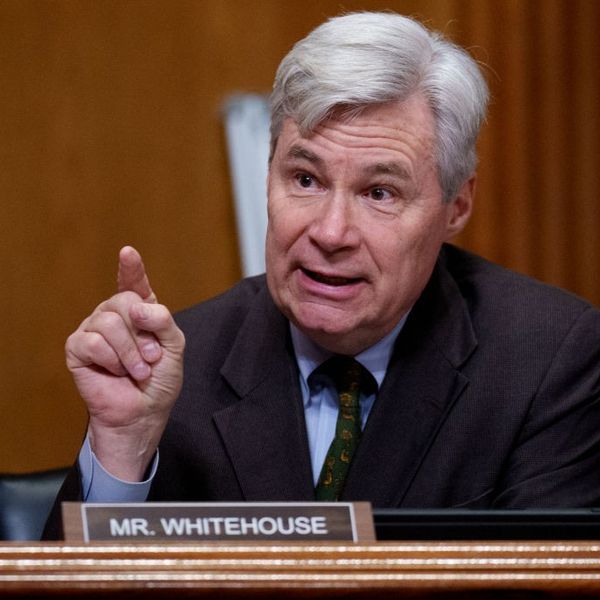US Senate Drops Bill to Cap Carbon Emissions
Plan to charge large polluters abandoned in favour of narrower legislation focusing on increasing firms' liability for oil spills
A major climate change bill that would have capped carbon emissions has been abandoned by Democrats in the US Senate in the face of opposition from both sides of the house.
Under pressure from falling popularity ratings, Barack Obama had hoped the bill would add to the two biggest legislative successes of his presidency: the comprehensive health care bill and reform of the US banking and financial sector.
Democrats have been trying to pass a plan that charges power plants, manufacturers and other large polluters for their carbon dioxide emissions, the leading contributor to global warming, for more than a year. But it ran into opposition from Republican senators, as well as Democrats eager not to jeopardise their chances in November's midterm elections.
Republicans said the bill would create a "national energy tax", warning costs would be passed to consumers in the form of higher electricity bills and fuel costs that would lead manufacturers to take their factories overseas, putting jobs at risk.
The failure to pass sweeping energy legislation is likely to weaken the US negotiating position heading into the international climate negotiations in Mexico at the end of the year.
Democrats hope to instead pass a narrower energy bill next week that would increase the liability of companies for oil spills in the light of public anger towards BP over the Gulf of Mexico disaster.
Senate majority leader Harry Reid said the reason for abandoning the attempt to pass a comprehensive energy and climate bill was simple: "We know we don't have the votes."
He said no Republican senator was willing to back the bill but maintained that the narrower legislation would still be "a step forward".
"Number one, we're going to hold BP accountable to ensure that they clean up their mess," he said. "Hopefully, we can stop [accidents] from ever happening, but if they do, there will be a process to move forward."
The bill would also boost energy efficient homes and provide incentives to convert many of America's large trucks from diesel to natural gas.
Senator John Kerry, the Democrat who was lead sponsor of the now-abandoned climate bill, was hopeful that carbon emissions would eventually be capped. He noted that it took more than two decades for Congress to approve a health care bill championed by his friend and fellow Massachusetts senator, the late Ted Kennedy.
"This is not going to take close to that long," he said. "I am absolutely confident that as the American people make their voices heard, and as our colleagues go home and listen to them we're going to grow in our ability to be able to pass this." White House energy adviser Carol Browner said Obama still supported a comprehensive bill that included a cap on carbon emissions but also backed Reid's decision to go forward with a narrower bill.
Larry Schweiger, president and CEO of the National Wildlife Federation, warned that the country would pay a "high price" if the Senate failed to curb carbon emissions.
"Too many senators are listening to polluters instead of the American public," he said. "Too many senators have learned nothing from the Gulf disaster and the high price we pay when oil lobbyists dictate our energy laws."
An Urgent Message From Our Co-Founder
Dear Common Dreams reader, The U.S. is on a fast track to authoritarianism like nothing I've ever seen. Meanwhile, corporate news outlets are utterly capitulating to Trump, twisting their coverage to avoid drawing his ire while lining up to stuff cash in his pockets. That's why I believe that Common Dreams is doing the best and most consequential reporting that we've ever done. Our small but mighty team is a progressive reporting powerhouse, covering the news every day that the corporate media never will. Our mission has always been simple: To inform. To inspire. And to ignite change for the common good. Now here's the key piece that I want all our readers to understand: None of this would be possible without your financial support. That's not just some fundraising cliche. It's the absolute and literal truth. We don't accept corporate advertising and never will. We don't have a paywall because we don't think people should be blocked from critical news based on their ability to pay. Everything we do is funded by the donations of readers like you. Will you donate now to help power the nonprofit, independent reporting of Common Dreams? Thank you for being a vital member of our community. Together, we can keep independent journalism alive when it’s needed most. - Craig Brown, Co-founder |
A major climate change bill that would have capped carbon emissions has been abandoned by Democrats in the US Senate in the face of opposition from both sides of the house.
Under pressure from falling popularity ratings, Barack Obama had hoped the bill would add to the two biggest legislative successes of his presidency: the comprehensive health care bill and reform of the US banking and financial sector.
Democrats have been trying to pass a plan that charges power plants, manufacturers and other large polluters for their carbon dioxide emissions, the leading contributor to global warming, for more than a year. But it ran into opposition from Republican senators, as well as Democrats eager not to jeopardise their chances in November's midterm elections.
Republicans said the bill would create a "national energy tax", warning costs would be passed to consumers in the form of higher electricity bills and fuel costs that would lead manufacturers to take their factories overseas, putting jobs at risk.
The failure to pass sweeping energy legislation is likely to weaken the US negotiating position heading into the international climate negotiations in Mexico at the end of the year.
Democrats hope to instead pass a narrower energy bill next week that would increase the liability of companies for oil spills in the light of public anger towards BP over the Gulf of Mexico disaster.
Senate majority leader Harry Reid said the reason for abandoning the attempt to pass a comprehensive energy and climate bill was simple: "We know we don't have the votes."
He said no Republican senator was willing to back the bill but maintained that the narrower legislation would still be "a step forward".
"Number one, we're going to hold BP accountable to ensure that they clean up their mess," he said. "Hopefully, we can stop [accidents] from ever happening, but if they do, there will be a process to move forward."
The bill would also boost energy efficient homes and provide incentives to convert many of America's large trucks from diesel to natural gas.
Senator John Kerry, the Democrat who was lead sponsor of the now-abandoned climate bill, was hopeful that carbon emissions would eventually be capped. He noted that it took more than two decades for Congress to approve a health care bill championed by his friend and fellow Massachusetts senator, the late Ted Kennedy.
"This is not going to take close to that long," he said. "I am absolutely confident that as the American people make their voices heard, and as our colleagues go home and listen to them we're going to grow in our ability to be able to pass this." White House energy adviser Carol Browner said Obama still supported a comprehensive bill that included a cap on carbon emissions but also backed Reid's decision to go forward with a narrower bill.
Larry Schweiger, president and CEO of the National Wildlife Federation, warned that the country would pay a "high price" if the Senate failed to curb carbon emissions.
"Too many senators are listening to polluters instead of the American public," he said. "Too many senators have learned nothing from the Gulf disaster and the high price we pay when oil lobbyists dictate our energy laws."
A major climate change bill that would have capped carbon emissions has been abandoned by Democrats in the US Senate in the face of opposition from both sides of the house.
Under pressure from falling popularity ratings, Barack Obama had hoped the bill would add to the two biggest legislative successes of his presidency: the comprehensive health care bill and reform of the US banking and financial sector.
Democrats have been trying to pass a plan that charges power plants, manufacturers and other large polluters for their carbon dioxide emissions, the leading contributor to global warming, for more than a year. But it ran into opposition from Republican senators, as well as Democrats eager not to jeopardise their chances in November's midterm elections.
Republicans said the bill would create a "national energy tax", warning costs would be passed to consumers in the form of higher electricity bills and fuel costs that would lead manufacturers to take their factories overseas, putting jobs at risk.
The failure to pass sweeping energy legislation is likely to weaken the US negotiating position heading into the international climate negotiations in Mexico at the end of the year.
Democrats hope to instead pass a narrower energy bill next week that would increase the liability of companies for oil spills in the light of public anger towards BP over the Gulf of Mexico disaster.
Senate majority leader Harry Reid said the reason for abandoning the attempt to pass a comprehensive energy and climate bill was simple: "We know we don't have the votes."
He said no Republican senator was willing to back the bill but maintained that the narrower legislation would still be "a step forward".
"Number one, we're going to hold BP accountable to ensure that they clean up their mess," he said. "Hopefully, we can stop [accidents] from ever happening, but if they do, there will be a process to move forward."
The bill would also boost energy efficient homes and provide incentives to convert many of America's large trucks from diesel to natural gas.
Senator John Kerry, the Democrat who was lead sponsor of the now-abandoned climate bill, was hopeful that carbon emissions would eventually be capped. He noted that it took more than two decades for Congress to approve a health care bill championed by his friend and fellow Massachusetts senator, the late Ted Kennedy.
"This is not going to take close to that long," he said. "I am absolutely confident that as the American people make their voices heard, and as our colleagues go home and listen to them we're going to grow in our ability to be able to pass this." White House energy adviser Carol Browner said Obama still supported a comprehensive bill that included a cap on carbon emissions but also backed Reid's decision to go forward with a narrower bill.
Larry Schweiger, president and CEO of the National Wildlife Federation, warned that the country would pay a "high price" if the Senate failed to curb carbon emissions.
"Too many senators are listening to polluters instead of the American public," he said. "Too many senators have learned nothing from the Gulf disaster and the high price we pay when oil lobbyists dictate our energy laws."

